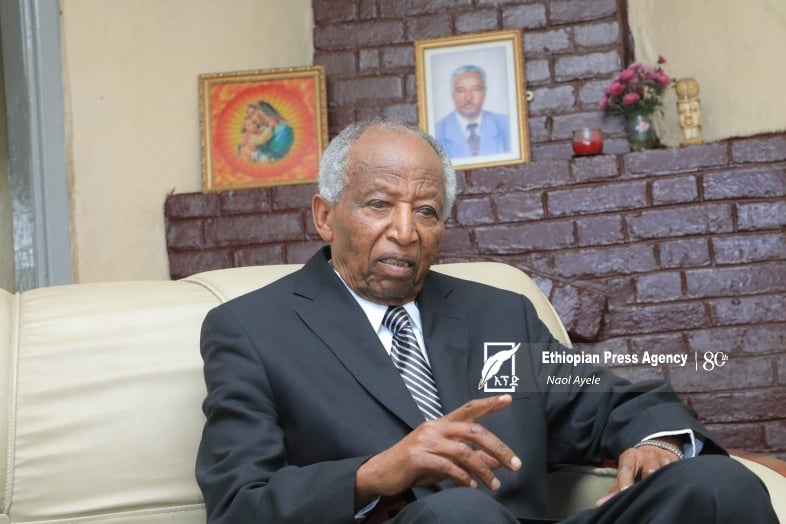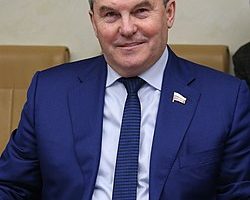
Today’s guest Yacob Wolde –Mariam was born and raised in Nakamte town, Wollega, on 19 June 1929. He attended a catholic mission school between 1938 and 1941 until the government closed down all missionary schools and transferred all students to Teferi Mekonnen School.
Yakob attended secondary school education in Addis Ababa. He passed the London matriculation examination with distinction becoming one of the nine students to be sent for electrical engineering studies to London.
He arrived there in October 1950 to enrol as a pre-engineering student in pure and applied mathematics, physics and chemistry at the Kingston upon-Thames Technical College as an external student of the University of London, living in the Sorption neighbourhood of London, a city which, as he recalled, was stunningly beautiful.
After persuading himself that engineering was not made for him, he cultivated a great love for journalism by merely reading newspapers. He was ordered to return home by the then officials. He served as a teacher at Amaha Desta School in Addis Ababa and one of the schools found in Nekemte town for a couple of years.
As he got married he abandoned the very idea of returning to London for the resumption of his studies. He worked at Ethiopian Electric Light and Power Authority (EELPA) in 1958. Later he resigned to join the Ethiopian Press Agency as sub-editor of The Ethiopian Herald newspaper replacing a departing African-American journalist. He succeeded David A.Talbot in 1960 to become editor-in-chief for slightly more than a year.
He became the first Ethiopian journalist to advocate editorially the setting up of the Civil Service Commission when he was chief editor of The Ethiopian Herald from June 1959 to November 1961. He wrote several articles which grabbed the eyes of the readers.
He read a lot of literature written by famous writers across the world especially in the UK and Russia. (In 1960) General Mengistu Neway and his brother Girmame Neway tried to stage a coup against the Emperor. However there was a rumour in the capital that went as Colonel Jagama Kelo, was the one attempting a coup. But actually, Jagama was fighting against the Kibure Zebegna, (The Imperial Guards) that cooperated with the two brothers. As a result, the people refrained from sending students to schools. “As an editor, I wrote an editorial which talks about ‘lack of information is a fundamental problem of the country’”
He practised writing in the Herald under his name, mostly translating Emperor Haile Selassie’s speeches, which would come beautifully hand-written with a ‘Lion of Judah’ seal at the head of each page. He had also written several anonymous articles praising the Emperor-or admiring constitutional monarchy – “to strengthen my precarious position in the Ministry of Information.”
However, his editorship of the Ethiopian Herald ended abruptly in 1961 when he was fired suddenly by the officials of the Ministry of Information who were unnerved by his criticism of the rumour circulating in the city after the 1960 coup d’état on ‘lack of information. He had also praised the Great October Revolution as a significant event in the history of mankind-in a signed article when the editorial was censored.
In 1963 he joined the Voice of Ethiopia as its editor and later worked for Menen and Addis Reporter magazines. When those publications were closed, he was transferred to the publications division of the press department.
“I was writing satirical articles for The Ethiopian Herald from 1971 to the first two months of 1974 simply because its editor –who had recently arrived from the US, had begged me to do so to make the Sunday issue more popular because I had always thrived in an atmosphere,” he says.
Yakob had ten children and one of his daughters had worked for the Ethiopian Reporter. The Ethiopian Herald spent a few hours learning about his career at the Ethiopian Herald. Excerpts;
Could you tell us the reason you were assigned as Acting Editor of the Ethiopian Herald?
I accidentally joined The Ethiopian Herald in August 1959. I was attending engineering education in London and came back home without completing it. I served as a teacher for four years. I then joined EELPA. Once, I went to Jimma to install a high tension electric line. However, the people complain about the electric pole erected in their fence due to electric power fright.
Some people who knew about my effort and skill of writing advised me to join The Ethiopian Herald. Accordingly, I resigned from EELPA and went to the then Chief Editor of The Ethiopian Herald, Doctor A. Talbot. He gave me a homemade assignment to write about something, but I immediately wrote an article and gave it to him. He ordered me to translate a French article to English and I did it. He saw it and told me to start a job on the morrow. He served The Ethiopian Herald for two solid years and then worked in the bilingual Menen Newspaper which publishes stories in Amharic and English.
You studied engineering as a major. But what motivated you to be a journalist?
When I was in London, I was highly interested in reading English literature and French philosophy of the time. There was a newspaper called -New times and Ethiopians prepared by Silvia Pankhurst and She responded to the Italian invasion of Ethiopia publishing The New Times and Ethiopia News in 1936, and became a supporter of Haile Selassie I. I was writing for this newspaper. I was in Kenya when the people staged the Mao-Mao uprising to liberate themselves from colonialists. When I read it, the article was written by the White people clearly showed their inhuman behaviour. I wrote an article entitled: the meaning of civilization. It elaborated; how civilized people made humane tasks. How the colonizers pictured Africans as a dreadful creatures. I wrote an article defending Africa in 1953.
What was your first job in The Ethiopian Herald?
I joined the Ethiopian Herald, replacing the outgoing American Editor. Because I adore writing an article, I did not stop writing an article there for the Ethiopian herald and I became popular before I was an Editor in Chief of the newspaper.
What was the core ideology of the time, when you were working as a Chief Editor of the Ethiopian Herald?
By then Dr Minase Haile, a politician, wrote a book that states what Ethiopian foreign policy looked like. Emperor Haile Selassie, I explained himself as a democrat. He augmented his claim by the existence of a constitution that regulates the government. As far as I am concerned, the landholding system in Ethiopia was not good. I fought and disagreed with many people on the land policy. I wrote about the then landlords. Even if the emperor needs to build a prosperous Ethiopia, the people suffered from the corrupted officials of the time. There was no freedom of speech.
The central point of Dr Menase was, the way to build modern Ethiopia. It was the landholding system that pulled down the then government. A peasant must hand over 50 to 75 per cent of the yield for the landlords. These are the very factors that made Ethiopia a poor country. In this regard, I appreciate Mengistu’s regime.
Would you tell us about the challenges faced so far, especially when you were working as an editor?
While I was an editor, the newspaper had presented the day to day activity of Emperor Haile Selassie I. We were not given any job description or mission. We were required to participate in the meetings chaired by the information minister as the press department was established later on. That was the way we had received the directive from the minister. Even though Aklilu Habtewold was a Prime Minister of Ethiopia, the newspapers never covered his activities.
It was obvious that the Ethiopian Herald was a weekly newspaper, what was the reason behind the shift to daily?
I forgot one thing about the evolution of the Ethiopian Press Agency. People wrongly thought that there was a daily Ethiopian Herald newspaper. This is not true. Since I was at school, most of the newspapers published were weekly. Following the establishment of UNECA and Ethiopia being chosen to be a seat for the office, from the end of 1958, the newspapers began to publish daily. That is why they hired us as a journalist.
Some people told me that when you were working as an editor, you were not on good terms with the US Information Service (USIS). What went wrong?
We received news both from Reuters and USIS. I edited the stories of USIS and this makes them angry. In my tenure, the Ethiopian herald had an anti-colonialist stance and this did not make Americans happy. We denounced the concept of colonialism. Ayele Woldegyorgis, Negash Gebremariam and I had the same stance. The colonialists of the day had complained about Ethiopia. The then Ethiopian officials replied that when you come out of colonialist perception, I will order The Ethiopian Herald to stop writing about anti-colonialism. I was writing articles about how the American government oppressed the African continent through neocolonialism.
What was your political stance since the time that the military junta grabbed power?
I did not see anything wrong with socialism. I am still a socialist. Not revolutionary socialism but democratic socialism. But I am not fundamentally opposed to the system. Communism can’t be practically applied in this country. I supported the Derg because it introduced the concept ‘land to the tiller’. I have written various articles in connection with this. Our workmate, Tegegnework was killed together with the 60 senior government officials of Haile Selassie I due to his pendulous behaviour. I also wrote an article entitled—rotten at the root- which elaborated the corrupted nature of the Haile Selassie regime. It was quoted all over the world.
At the time when you were the chief editor of the Ethiopia Herald, Pan-Africanism a sentiment that bought credence? Would you tell us some points about its activities?
Before the founding of OAU, Africa was divided into two parts: Monrovia and Casablanca groups. Using the opportunity, Emperor Haile Selassie I had started the move to create a united Africa taking its initiation. The concept of pan-Africanism was first coined by the king. This was one gigantic role the king had played. He invited the two groups and established the organization for Africa unity.
What was the motive to establish the Ethiopia Herald newspaper? What do you expect and wish for in the newspaper?
To be frank, there is no government-owned newspaper in a democratic society. Such a society needs freedom. Government-owned newspapers cannot work in a democratic society. Through time, they will cease to exist. As it compromises freedom of the press, there should not be a government newspaper. When the country advances economically, politically and socially, the government-owned newspapers would vanish. The role of the government should be to provide information when it is necessary. In a democratic society, there are opposition political parties, thus, the newspaper has to cover both the voices of government and opposition parties.
What is your advice for Ethiopian Herald staff to strengthen the newspaper?
As its audience is foreigners and the medium is English, it has to be edited critically. You have to try to make it free from grammatical errors. As foreigners get information from the newspaper, stories should be published clearly. You need to prepare a glossary which makes the task easy.
Do you say something about the recent reform carried out in Ethiopia?
Well, the Prime Minister is doing a great job for Ethiopia. As far as I am concerned it is having free press for the first time in history. I have been in journalism since 1951 and I have not experienced such freedom of speech in Ethiopia. Whenever you read newspapers, listen to the radio or even the government media, they are talking freely. It is a great thing for Ethiopia.
Thank you very much!
Thank you
BY GIRMACHEW GASHAW
THE ETHIOPIAN HERALD OCTOBER 12/2021





